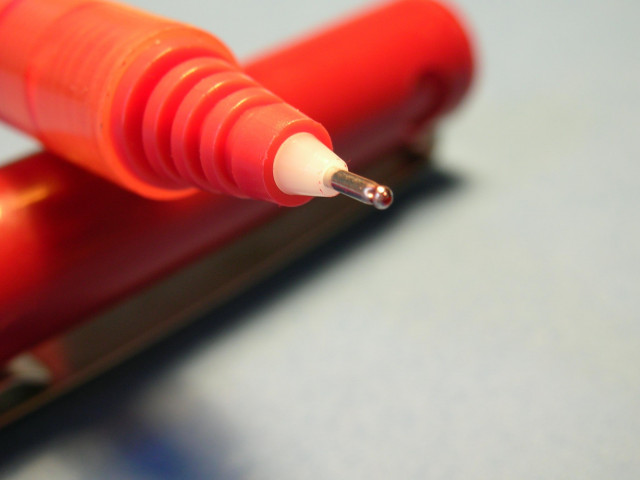Safdar Ali Qureshi: An outstanding journalist, upright man
Safdar’s interest in journalism was inspired by his cousin A.K. Qureshi who was a Reuters correspondent as well.

Safdar Ali Qureshi: An outstanding journalist, upright man
Safdar’s interest in journalism was inspired by his cousin A.K. Qureshi who was a Reuters correspondent as well as the first correspondent of the Times of London in Pakistan after Partition. He died in the crash of PIA’s inaugural flight to Cairo in 1964.
Safdar joined APP in 1949 after obtaining his Master’s degree in history from Government College Lahore. Within a few years he had become one of the top journalists of the country. In 1956 he went to China on a study tour with a delegation of journalists. He was surprised when Prime Minister Chou-en-Lai accepted his request for an exclusive interview. In 1954, Pakistan had signed the first Mutual Defence Assistance Agreement with USA. A few months later, it had joined the South East Asia Treaty Organization (SEATO) to counter the growing Soviet influence in the Region. Prime Minister Chou-en-Lie, without criticising the defence pacts with USA, offered China’s hand of friendship to Pakistan. The interview received prominent coverage not only in Pakistan but in all major international newspapers because the Western media had virtually no presence in China in those days.
Having been a member of the Government College cricket team, Safdar Qureshi had also become the main sports correspondent of APP. In 1957, he covered Pakistan cricket team’s tour of West Indies and became very popular in sporting circles and a close personal friend of all our test cricketers at that time.
In 1963, Safdar was elected as President of Pakistan Federal Union of Journalists (PFUJ). President Ayub Khan had just promulgated his infamous Press and Publications Ordinance 1963 to muzzle the media. Safdar spearheaded the press campaign to agitate against this ordinance. He was re-elected President of PFUJ for a second two-year term in 1965. In that capacity he regularly represented Pakistan in meetings of the Afro-Asian Journalists Association in China and Indonesia.
Prime Minister Chou-en-Lie, without criticizing these pacts, offered China’s hand of friendship to Pakistan through this interview with Safdar Qureshi and also made some incisive comments on global politics. The interview received prominent coverage not only in Pakistan but in all major international newspapers because the Western media had virtually no presence in China in those days.
In 1967, when he was only 40 years old, he succeeded Hamid Jalal as Director General of APP. Many of Safdar’s media colleagues remember those years as a high point in APP’s history in Pakistan.
In 1974, the OIC Summit held in Lahore, decided to establish the International Islamic News Agency at Jeddah (IINA) to provide to an independent news network for Islamic countries. Safdar Qureshi was appointed as the first Director General of IINA in 1975. He served in that position for 12 years returning to Pakistan in 1987.
I first met Safdar in Peshawar in August 1951, when he was posted to the APP Bureau and I had started my career as Deputy Director Information in the Government of NWFP. Khan Abdul Qayyum Khan, who was the Chief Minister of NWFP, was very keen to publicise development activities initiated by him by opening new primary schools, road and bridges or switching on electricity connections to different villages of the province. We had purchased a new Chevrolet 8-seater station wagon for only Rs13,000 to ferry the media team with the chief minister’s entourage. The team included Sheikh Sanaullah of Khyber Mail, Faiq Kamran of the Shahbaz, Afzal Mahmood of Civil & Military Gazette (C&MG), N.H. Hashmi of Radio Pakistan, Safdar Qureshi (or A.R. Mufti) of APP and press photographer Sharif. Our friendship continued to grow as we both moved from Peshawar to Karachi and then to Rawalpindi.
When I was in Rome, during 1971 and 1984, Safdar made three to four visits to Italy to negotiate with an Italian satellite company to rent some transponders for IINA. We had memorable visits to Florence, Siena, Venice, Capri and Sisley during those visits.
During our evening walks together in the 1990s, I kept urging Safdar to write his memoirs but he never got round to it. Instead, he focused his attention on setting up a school in F-10 Sector. “Most of the private schools in Islamabad are for higher income groups”, he said, “We want to set up a school for low income families at nominal fees.” He taught English in the school for many years.
Safdar, like A.K. Qureshi, never married, but he had an extended family of brothers, sisters, nephews and nieces who all sincerely loved and adored him. He also had a very large circle of friends and cherished these friendships with such sincerity that each one of them thought, he must be Safdar’s best friend.
On the day of his death, Safdar was as usual watching the cricket match between Pakistan and Canada. At 5pm, he asked his servant to bring some tea with samosas and pakoras. At about 6pm, when the servant came to collect the tea tray, he found him dead, but sitting in his sofa with the remote control still in his hand!
As some one has said, “the way one leaves this world is sometimes more important than how one lives in this world”. Safdar left this world the way he lived his life - eating spicy samosa, sipping hot tea and watching world cup cricket. As I sprinkled rose petals on Safdar’s grave, I could hardly control my tears but this evergreen image of Safdar reflecting his unending zest for life, cheered me up.
The writer is a former finance minister and currently Vice-Chancellor of Beaconhouse National University sartajaziz@hotmail.com
Published in The Express Tribune, March 8th, 2011.



















COMMENTS
Comments are moderated and generally will be posted if they are on-topic and not abusive.
For more information, please see our Comments FAQ